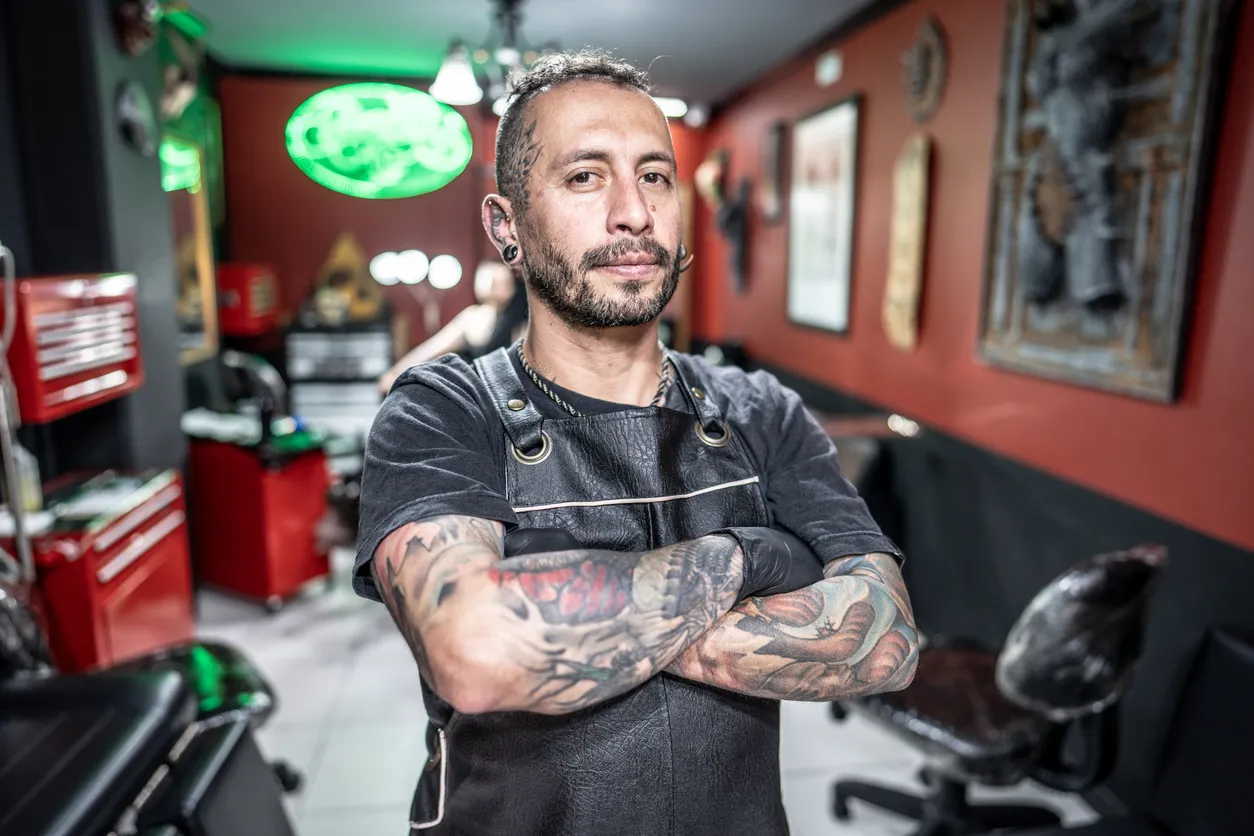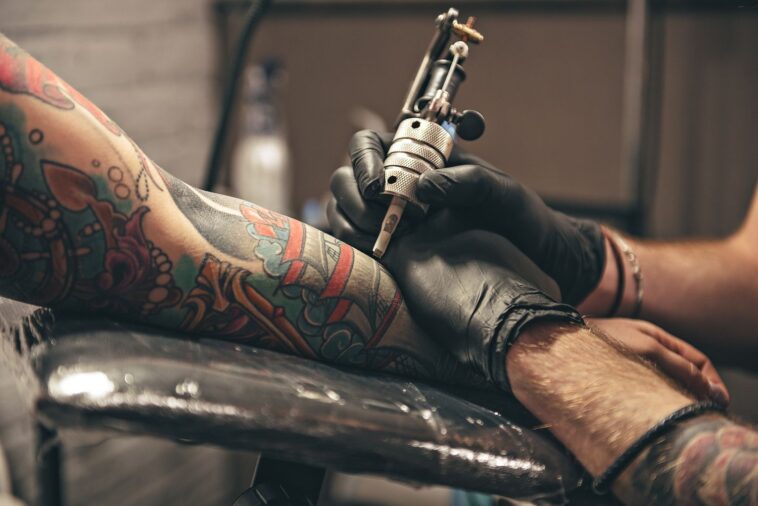Have you recently decided to turn your love for creating art into a lucrative tattoo business? While many aspects of your business may be easy enough to set up, you could find yourself facing a few hurdles when it comes to finding the right insurance for your business. The main reason for this is the high-risk nature of the tattoo and body piercing industry.
There’s some good news though. Many credited insurance companies are offering blanket coverage more commonly referred to as tattoo insurance that covers the full scope of tattooing and body piercing.
Defining Tattoo Insurance

As the name implies, tattoo insurance is a type of cover aimed at protecting tattoo artists. This means that this type of insurance has been designed to protect tattoo business owners and artists from the risks that go along with performing body art, piercings, and other related services.
Even the most experienced tattoo artists are not immune to accidents, and mistakes can happen in fast-paced environments. Without proper insurance, a single claim could lead to financial instability and even closure of the business.
It can include mistakes, allergic reactions, or even accidents that could see customers submitting claims or opting for litigation. The right type of insurance will help you provide cover for this.
Insurance is Key in Any Business
As an experienced tattoo artist, you may have already realized that despite all your best and most professional intentions, sometimes things just go wrong. Our team of insurance gurus have compiled a list of the top reasons why you may need insurance. We urge you to consider these factors.
1. Offers Protection from Potential Legal Claims

Whether you’re creating a tattoo on an existing customer or performing a removal on someone visiting your business for the first time, there’s always the risk of an adverse reaction. Some of these issues can include the following:
- Customer is generally displeased with the quality of work.
- The work done (tattooing, piercing, or body modifications) results in unnecessary scarring.
- Issues with tattoo removal.
Since these types of procedures are permanent, an unhappy customer can choose to sue your business or the tattoo artist directly. These claims will typically be labelled as negligence or malpractice. In this instance, tattoo insurance will cover these types of claims.
2. Acts as Treatment Liability Insurance
When a new tattoo, cover-up, or tattoo removal, is done there’s always the risk of the customer developing an infection or suffering a diverse reaction to the ink. These situations can happen despite your best efforts to maintain strict hygiene protocols. Tattoo insurance covers this under the treatment risk clause. There’s no way to know how a customer (new or existing) will react to the treatment, this insurance is vital.
3. Covers Public Liability

No matter what type of workspace you work in, there’s always the risk of an accident. This means that you will need public liability insurance. Fortunately, this aspect is also covered under the tattoo insurance policy.
If a member of the public trips and falls in your tattoo business, the public liability aspect will cover any potential medical costs or legal fees if the customer chooses to sue you. No matter how safe you think your premises are, our experts recommend protecting yourself with this insurance cover.
Another point to keep in mind is that treatment liability insurance can also cover aftercare-related issues. If a customer follows improper aftercare procedures and experiences complications, they may still attempt to hold your business accountable. Having treatment insurance ensures you’re protected even in these cases.
4. Covers Body Piercing Insurance
These days, many tattoo studios also offer body piercing services. As with tattooing, body piercings also carry the risk of infections and other adverse reactions. The body piercing aspect of the insurance policy covers this and will ensure that you and your business are covered by any complications arising from a body piercing. This is crucial for any business that deals with body piercings or modifications of any sort.
5. Provides Employer’s Liability Insurance

In most cases, Australian Law dictates that any business employing staff must have employer liability insurance (Workmen’s Compensation) in place. This aspect covers instances where employees could also get hurt in the workspace. Whether an employee gets a needle stick injury or accidentally trips and falls, you’ll have peace of mind that your employee and your business are both covered.
Even if your business hires temporary or freelance staff, such as part-time piercers or guest tattoo artists, this coverage remains relevant. You are responsible for ensuring that anyone working under your roof or with your clients is protected in case of injury.
6. Covers Guest Artists
It’s not uncommon for tattoo business owners to occasionally use guest artists or train new employees. The good news is that tattoo insurance will also cover any claims brought against these people for work they do on your premises while in your employ.
This insurance also covers instances where your team works off-site under your brand such as when they work at festivals, trade, and art shows. With this, you’ll have peace of mind that you can safely attend events that help you create and boost your overall brand awareness.
Final Thoughts
It’s important to keep in mind that although your business differs from many others in the traditional sense, it doesn’t diminish the need for extensive insurance coverage. While this may have been challenging to come by in previous years, many insurance companies are now offering the coverage you need to protect you and your business.
Speak to your insurance broker about finding the best tattoo insurance options to safeguard you, your business, and of course your customers. In the event that something goes wrong, you’ll be glad you made the investment!



